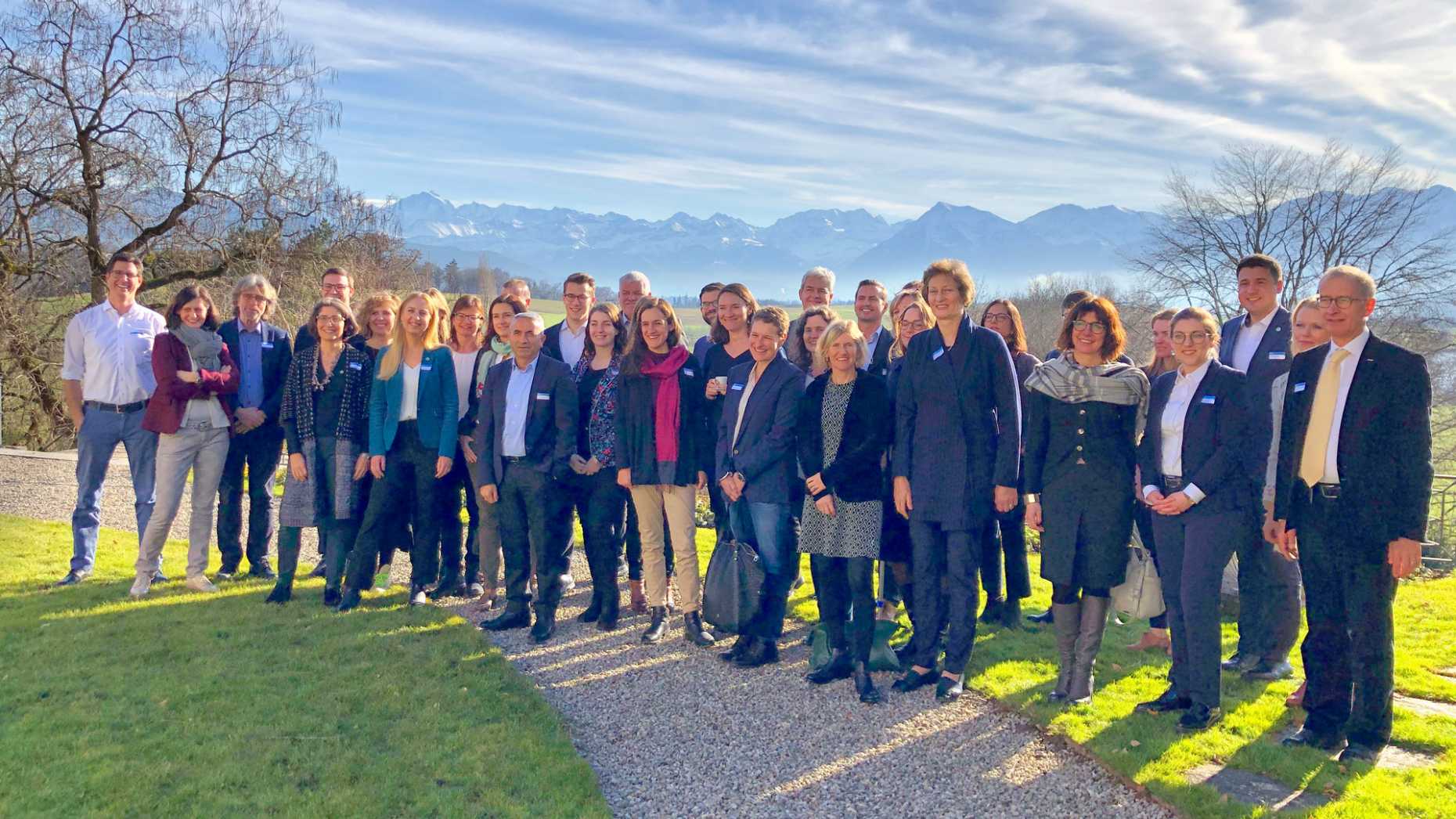Preparing for the legislature
Separation of powers, foreign policy, economic policy and climate change – at a two-day event in the Bern region, ETH imparted expertise to newly elected parliamentarians.

The seminar building of the Swiss National Bank is centrally but discreetly located in Gerzensee and enjoys a typically Swiss view of the snow-capped Bernese Alps. It’s the venue for a special two-day event: 33 newly elected parliamentarians keen to learn about the issues dominating current policymaking are taking advantage of the programme organised by ETH professor Michael Ambühl, Director of ETH’s Swiss School of Public Governance. “Based on our experience in 2015 and feedback from the various groups, we anticipated a great deal of interest in this type of event. That nearly half the newly elected representatives have set aside two days to come and learn with us is a pleasant surprise,” says Ambühl.
More young people and women
The list of participants reflects last October’s election results: nearly half of attendees are members of parliament from the Green and Green Liberal parties. It’s an illustrious group made up of many more women and young people than four years ago at the first orientation seminar. One such is Franziska Ryser, who at the age of 28 won a seat on the National Council for the Green Party in St. Gallen. Another thing that’s special about this newly elected member of the National Council is that she studied mechanical engineering at ETH and is currently a doctoral student at ETH’s Laboratory for Rehabilitation Engineering. So what does she expect from the two-day orientation seminar? “In the run-up to the election, it was simply impossible to explore every issue in the same depth. In my case, it would be immensely helpful to now get some initial input on security policy and the main concerns here,” says Ryser just before the presentations begin.
Toolbox for the next legislature
For the two-day event, Ambühl has brought in experts from the three language regions and various universities to speak on the nine key topics for parliament’s departmental committees, including the development of state powers, macroeconomic principles, Swiss social policy and mobility of the future. Ambühl himself is giving a presentation on the general principles of Swiss foreign policy, but it’s the idea behind the seminar rather than being at the centre of attention that motivates him: “As a federal university, we have a duty to ensure the transfer of knowledge to parliament, and so to contribute something to the res publica.” All the speakers are unanimous – the event is an excellent opportunity to interact directly with the newly elected representatives and to equip them with scientific facts for the legislature.
Getting to the core of the matter
This is no easy task, as the professors, accustomed to spending a whole semester exploring a given topic, have to decide which aspects they will focus on in a 45-minute slot. What do parliamentarians need to know about these specialist fields? Sonia Seneviratne, ETH Professor of Land-Climate Dynamics, addresses the issue of climate policy: “Politicians should understand why it matters whether we meet the 1.5-degree goal or only the 2-degree goal. I also want to convey what steps we must take to reduce CO2 emissions if we are to meet the 1.5-degree target.”
Full of praise
It seems the experts are doing a good job, for all the speakers receive plenty of praise from participants. There’s the occasional language hurdle – seminar organiser Ambühl ensures that there are presentations in both German and French – but learning to deal with the other national languages is part of everyday parliamentary life in Switzerland. “I never expected that it would be possible to do justice to these complex issues in such a short time span,” says Ryser enthusiastically. Another parliamentarian admits with a smile: “Only now do I fully understand why my daughter studied economics!”
More than just knowledge transfer
ETH Rector Sarah Springman has made a special trip to Gerzensee to congratulate the participants on their electoral victory and to talk to them personally. During lunch together, she declares delightedly that her naturalisation application is now well underway and she hopes to be able to vote in future elections. She’s impressed – after living in Switzerland for 23 years – by the Swiss people’s capacity to reach a consensus, to work together and to find solutions. And this is indeed very much the spirit of the whole event.
It’s striking how open and collegial the mood is among the newly elected members of parliament. As Ambühl has mentioned during his welcome address, the orientation event is not just about explaining scientific concepts; it’s just as important for the newly elected politicians to connect with others beyond their party affiliation. The goal is for people to get to know each other and stay engaged in constructive dialogue even when they don’t share the same political opinions. Very Swiss indeed.
